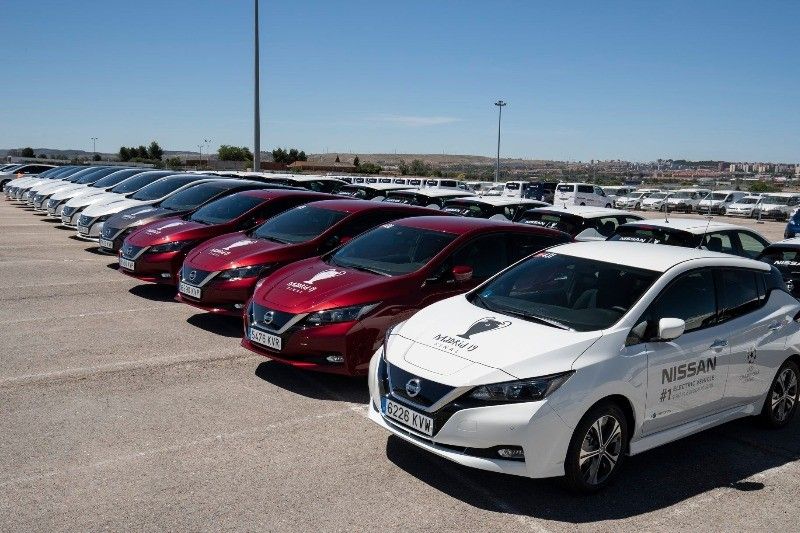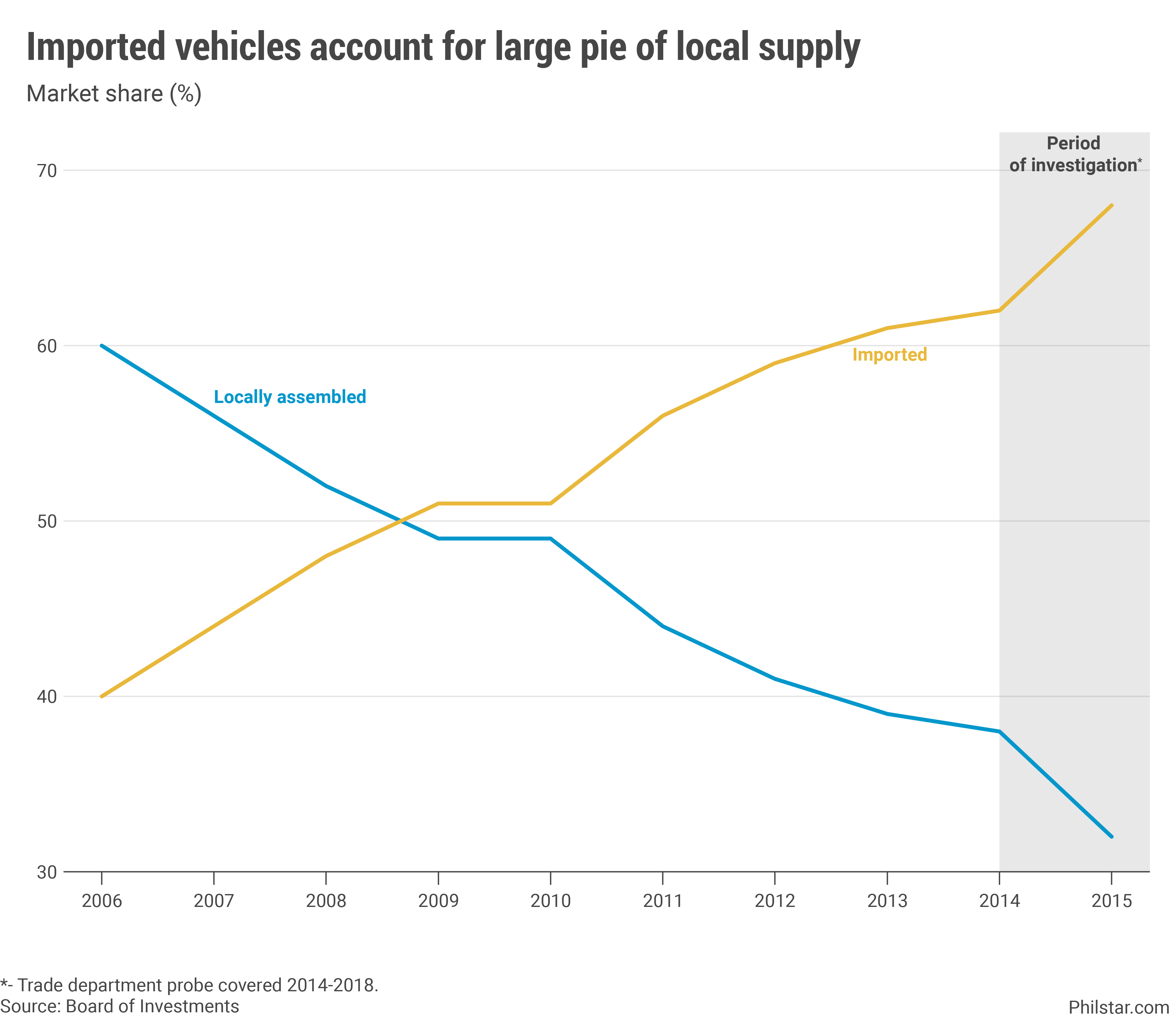Nissan shuts down local plant, third to do so in 3 years

MANILA, Philippines — Nissan Motor Philippines became the third car manufacturer in 3 years to halt assembly in the Philippines, highlighting the struggles of the broader automobile industry that government has been trying to revive for years.
On Wednesday, the Japanese automaker’s local unit informed the government of its plan to shutdown manufacturing operations at its plant in Sta. Rosa, Laguna. “The announcement of Nissan to close their assembly operations in the country is regrettable,” Trade Secretary Ramon Lopez said in a statement on Thursday.
“These developments all the more demonstrate the critical situation of the local motor vehicle industry,” he added.
In terms of car supply, Nissan’s departure would only stop production of its Almera model, which by government estimates was only able to sell an average of 4,500 units at home every year. That, the trade agency said, represented only 1% of total car market and would instead be imported from Japan and Thailand going forward.
Majority of the company's sales come from imported pick-ups and sport utility vehicles (SUVs).
But the shutdown also meant 133 additional Filipinos getting left jobless at the start of the year. The labor department is said to extend assistance to them, while Nissan would continue to operate marketing and distribution offices in the Philippines.
That said, Nissan closing its manufacturing shop underscored the automobile sector’s failing efforts to attract assemblers in the Philippines. While car sales have posted vibrant growth over the past 5 years prior to the pandemic that crashed demand, most cars sold are imported, accounting for 68% of the market in 2015. The trade department said this had since increased to around 70% currently.

On the ground, that meant more car assemblers closing shop. In 2019, Isuzu, another Japanese automaker, stopped producing its D-Max model onshore. The following year, just before the pandemic peaked, Honda Motor Co. Ltd. likewise left the country due to “low production volume.”
In fact, Lopez revealed Nissan would have joined Honda in leaving earlier last year, but that the former, while contemplating their exit at the time, delayed a decision on the matter. “They have in effect extended their stay,” the agency said.
The exodus of car manufacturers are continuing despite a prevailing state-led program that offers incentives to foreign assemblers. The Comprehensive Automotive Resurgence Strategy or CARS program, which started in 2015, provided for fiscal support to car firms that would establish local factories.
Apart from CARS, Lopez is likewise banking on the passage of the Corporate Recovery and Tax Incentives for Enterprises (CREATE) bill to keep remaining local assemblers and attract new ones. CREATE, which remains pending in Congress, would instantly lower corporate income tax rate to 25% from 30% for large companies, all while slowly dismantling some of their tax perks.
Currently, Toyota Motor Philippines and Mitsubishi Motors Philippines Corp. continue to assemble cars in the Philippines, along with their Korean counterpart, Hyundai Philippines and Foton Philippines, which is headquartered in Colombia.
But Lopez’s biggest bet for the revival of the local car sector is the department’s recent decision to slap more duties on imported vehicles. The tariff, which will be in effect for 200 days beginning January 5, requires P70,000 and P110,000 cash bonds for shipments of passenger cars and commercial vehicles, respectively.
The tariff is under review by the Tariff Commission which may decide to uphold or revoke it. Car manufacturers themselves have opposed the safeguard duties as most of them had already been importing bulk of their vehicles.
“The stoppage of Almera’s assembly operations, following closely that of Honda and Isuzu, only highlights that the local auto assembly industry is critically impacted by the surge in imports and will thus benefit from the time-bound safeguard duty,” Lopez said.
- Latest
- Trending































